Jon Brooks • • 22 min read
25 Best Psychology Books From Derren Brown You Must Read Before You Die
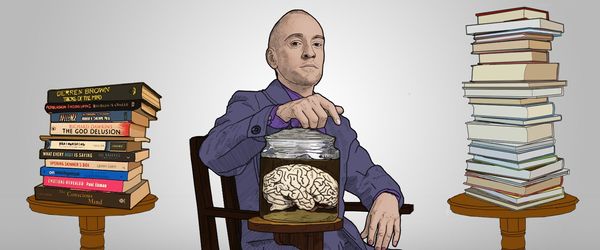
Every single person in the world is confident that what they see and hear is true. Humans have a tendency to overestimate the accuracy of their memory and underestimate how easily our thinking can be influenced by others. People will tell you they cannot be fooled, “Adverts don’t work on me.”
But this conception we have about ourselves is wrong—the human mind is far from perfect. And there is nobody in the world who understands the fallibility of human perception as much as Derren Brown. Using a mix of sleight-of-hand magic, psychology, misdirection, and showmanship, Derren is able to imprint suggestions, guide behavior, and read the minds of his audience from their unconscious behavior. In this article, we share the 25 best psychology books which have been recommended by Derren Brown.
These books will teach you how to protect yourself from malicious manipulation, detect lies and deceit, become more charismatic, engineer persuasion, and, perhaps most importantly to anyone who wants to keep a healthy, open mind: develop a level of skepticism that will give you a sixth sense for detecting bullshit.
On Understanding Body Language
Books on reading feelings and thoughts by observing behavior.
1. What Every BODY is Saying: An Ex-FBI Agent’s Guide to Speed-Reading People — Joe Navarro
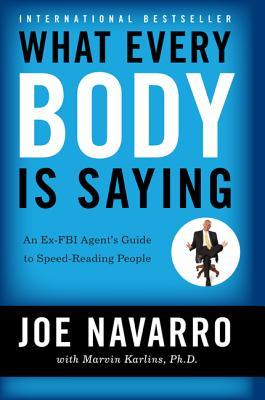
Body language is a notoriously hard subject to master. It’s easy to be overconfident when judging a person’s emotions, but this self-assuredness can, ironically, obfuscate rather than reveal true intentions. For example, if we learn that when someone crosses their arms they must be feeling uptight, we may mistake the times when they’re merely pensive or cold as an exhibition of defensiveness.
However, just because body language is a tough to master that does not mean it is unlearnable—far from it. For Ex-FBI agent Joe Navarro, his living (and sometimes his life) depended on being able to accurately judge the motives of those around him. In his body language masterwork, What Every BODY is Saying, rather than giving the reader a definite set of “rules” for decoding human behavior, Navarro instead draws from his extensive professional experience to provide you with tried and tested “patterns”, underpinned with practical, scientific explanations.
After reading this book you will be able to tell when someone is feeling agitated, hostile, or devious even when they’re trying desperately to conceal such emotions and what they are saying with these emotions.
Arm yourself with even more psychology and human behavior hacks by joining the Stairway to Wisdom.
2. Emotions Revealed — Paul Ekman
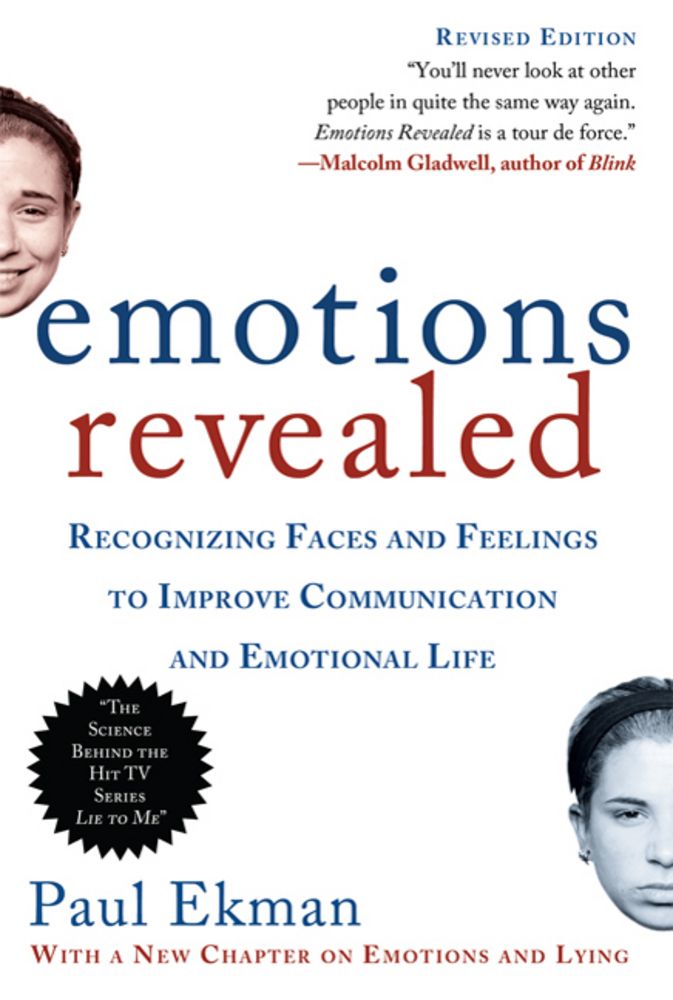
It’s no exaggeration to say that Paul Ekman is responsible for most of what we know about facial expressions. Decades ago, there was a dispute about whether facial expressions were innate or learned through culture and imitation. In 1967, Ekman and his team went to Papua New Guinea to find the truth. In one of their first experiments they interviewed a tribe who, up until then, had never interacted with westerners and showed them photographs of various facial expressions across various cultures. Ekman found that the Papua New Guinea tribesmen and tribeswomen could recognize happiness, sadness, surprise, anger, and every other typical emotion with ease. His expedition proved once and for all that facial expressions are not learned—they’re hardwired.
When Ekman returned home he dived face first into the arduous task of cataloging every conceivable human facial expression. He created a system called FACS (facial action coding system), took thousands of pictures of his own face, and assigned each arrangement a value based on which individual facial muscles were triggered. The result of this arduous task is Emotions Reveled, a how-to guide full of images, teaching you how to read peoples’ emotions and catch almost-invisible “micro-expressions,” which fleetingly reveal themselves when subsurface emotions leak out. If you want to know what is really going on in people’s minds, you need to read this book. Malcolm Gladwell said, after reading it, “You’ll never look at other people in quite the same way again.
3. Blink: The Power of Thinking without Thinking — Malcolm Gladwell

Blink diverts from your average body language or psychology book in one fundamental way. Malcolm Gladwell argues that most of us are much better at understanding human behavior and body language than we think, and it is this thinking—or overthinking—which causes us to overrule our correct intuitions. In a style those familiar with Gladwell’s work will appreciate, Blink takes us on a wide-ranging journey to meet some of the world’s most interesting experts on human behavior who show us when to trust our snap judgments and when to discarded them. Derren Brown found Blink to be “a very readable and enjoyable book about making accurate instant judgments.”
Arm yourself with even more psychology and human behavior hacks by joining the Stairway to Wisdom.
4. The Book of Tells: How to Read People’s Minds by Their Actions — Peter Collett
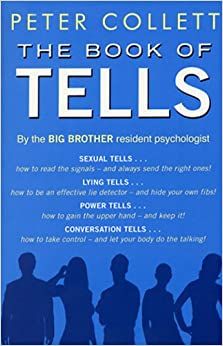
The co-founder of HighExistence, Martijn Schrip, is an ex-professional poker player. Playing poker well requires an extraordinary amount of skill and calculation, simply because there are so many variables. One of those variables is the emotional landscape of the other players. You may face players who try to minimize risk, others who prefer to intimidate you, and it’s your job to tell the difference. The Book of Tells is the kind of psychology book a poker pro, or anyone who wants to function on a similarly high level, would do well to keep at his or her bedside. Peter Collett isn’t concerned with “universal” behaviors, per se, but rather with “tells” that are specific to the individual whom you encounter and the context in which you find them. By reading this book, you’ll learn how to lazer-look into the insecurities and body-language-habits of everyone you encounter.
5. The Truth About Lying — Stan B. Walters
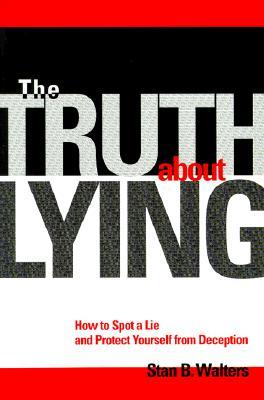
60% of people can’t go 10 minutes without lying. Lies, if you will, are just a fact of life. One could even argue the whole of nature is based on lies and deception. Your friends lie to you, your family lies to you, and your co-workers lie to you. And if you don’t believe this, you’re lying to yourself. Try going one day without telling an untruth. It’s hard—impossible even. Most of the time, of course, these lies are well-intended. We may not give our “true” opinion on a home-cooked meal, or give our “true” view on our best friend’s tattoo, for example. We lie to ourselves to manage our emotions. But sometimes lies are indeed uttered with malicious intent. People want to deceive us or we fool ourselves to continue behavior that is no longer serving us. It is when this happens that you would have greatly benefitted by reading The Truth About Lying.
On Cultivating Influence & Charisma
Books on how to influence and avoid being manipulated.
6. Brainwashing: The Science of Thought Control — Kathleen Taylor
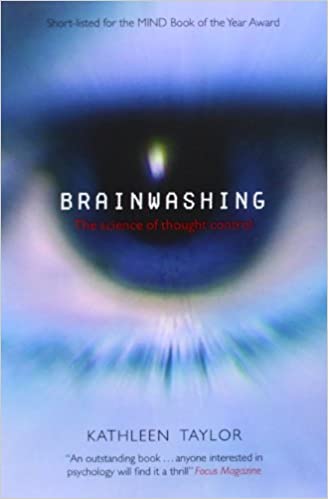
Can a person be “brainwashed”? If so, how and how can we prevent it from happening to us? If not, why not and why is it such a common phrase? Those are the questions neuroscientist and physiologist Kathleen Taylor sets out to answer in this half-disturbing, half-mesmerizing book. In the first part of the book, which is titled “Torture and seduction,” Taylor takes on a history tour of brainwashing, tracing all the way back the origin of the word itself. It is in this section Taylor shows us the attempts at brainwashing in the spheres of cults, seduction, marketing, influence, torture, and political thought-reform. In part two, we learn about the mechanisms in the brain that allow deep identity-level change to occur (not the good kind), and how we can stop this from happening to us.
Brainwashing was shortlisted for the MIND “Book of the Year” in 2005. It’s an incredible read and will forever change the way you view personality change of all kinds.
7. Influence: The Psychology of Persuasion — Robert B. Cialdini, Ph.D.
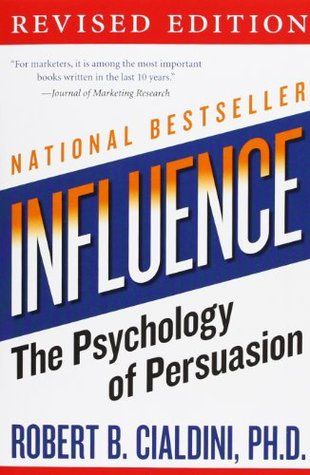
There are very few world-class marketers who do not own a copy of Influence. This psychology book is probably the most referenced and recommended book on selling ever written. Influence is the book from which most other popular persuasion guides steal from. If you want to learn how to truly influence people, or how people influence you, I encourage you to go back to the source.
Influence is split into six sections, each outlining a psychological principle which causes us to take action (even if we had no conscious intention of doing so). Professor Cialdini is not a guru; he’s a scientist. Every concept you learn in Influence is backed up by rigorous research. Many of the studies are hard to believe. In one experiment, Cialdini discovered just by using the word “because,” in a certain way, one can become 93% more influential. If you want to learn the exact methods marketers use to influence you every day and at the same time boost your own persuasive capabilities, read Influence because it’s simply the best out there.
Arm yourself with even more psychology and human behavior hacks by joining the Stairway to Wisdom.
8. The Right Way to Do Wrong: An Expose of Successful Criminals — Harry Houdini
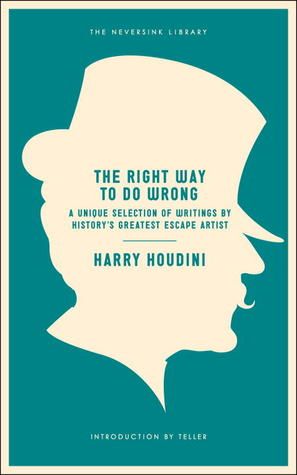
This little-known book, originally published in 1906 and written by the great Harry Houdini, is a masterclass in deception and misdirection. When it comes to influencing others there is a limit to what science can teach you. All across the globe there are con-artists, many have never read a book in their lives, yet are able to influence and manipulate people just the same.
This book explores the mindsets and methods of successful criminals. No book selection on influence would be complete without a mention of such real-world influencers. Don’t let the dark subject matter here deter you. As Houdini shows us in this marvelous century-old book, not all those who lack morals lack insight.
9. Persuasion Engineering — Richard Bandler and John Lavalle
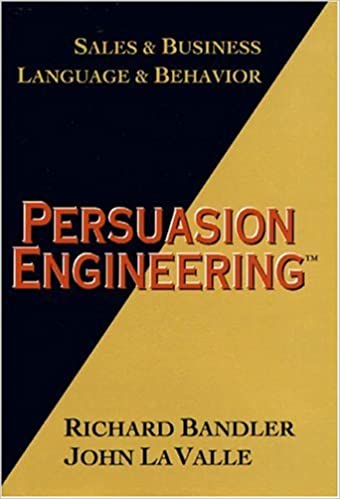
NLP (Nero-Linguistic Programming) is an approach to communication, personal development, and psychotherapy based on the idea of “modeling” successful individuals (patients, therapists, performers) and then deconstructing their linguistic and mental patterns so that others can recreate the same success. NLP was founded by linguist John Grinder and computer science major Richard Bandler. When asked to summarize what NLP is, Bandler said, “NLP is an attitude and a methodology that leaves behind a trail of techniques.”
When NLP first started Bandler and Grinder modeled the world-class therapists Virginia Satia and Milton H. Erickson. In *Persuasion Engineering*, Bandler and co-author John Lavalle leave the therapeutic setting and enter into the world of sales. What is unique about this sales book is that Bandler brings to it many of the language patterns he picked up from his time spent studying therapists. At its root, Persuasion Engineering is a book all about how you can change peoples’ emotional states and to get them to take action.
10. The Oxford Handbook of Hypnosis: Theory, Research, and Practice
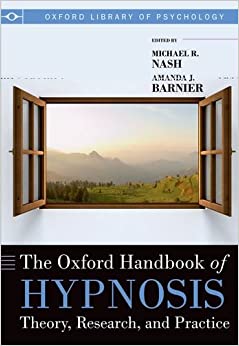
As with most alternative therapies, hypnosis is surrounded by conflicting ideas about what it actually is. Some experts think that it’s a complicated way of “playing along,” and others think that it’s a special brain state one enters into. As interesting as that is, I argue that what hypnosis is happens to be less important than how it works. In hypnotic states, people have agreed to drink vinegar straight, eat whole onions raw, and dance like chickens in front of a thousand laughing faces. If hypnosis isn’t deeply connected to the field of influence, I don’t know what is.
But when it comes to alternative medicines and therapies like hypnosis, untangling the facts from the fiction is hard work. On one side, you have people who have turned their lives around via hypnotherapy, and on the other you’ll find five-part CD courses teaching you how to become a millionaire through self-hypnosis.
Derren Brown on the snake-oil side of hypnosis:
Sadly hypnosis lends itself to all sorts of vacuous literature that runs the full gamut from empty self-help, through positive thinking and improve-your-golf to the joys of reincarnation. I can’t bring myself to recommend any of them, but knock yourself out if that’s what you like. (Though I draw a line at reincarnation). Likewise I can’t offer any thoughts on the teach-yourself-hypnosis books that are out there as frankly I’ve never read them.
As a starting place for learning hypnosis, Derren Brown recommends the Oxford Handbook of Hypnosis, which he said was “a very comprehensive book on the latest research, and its applications to therapy.”
Read this: 25 Best Self-Improvement Books You Need to Read Before You Die
On Rational Thinking
Books that show you how to think lucidly and see the world with clarity.
11. The God Delusion — Richard Dawkins
The God Delusion has a special place in Derren Brown’s library:
Occasionally I get asked in interviews what my favorite book is, and until now my answer to this rather tricky question has been Boswell’s London Diaries. Not any more. Dawkins, no one save a couple of Times journalists will be fascinated to hear, has pipped my favorite dandy to the post. My only regret is that Dawkins keeps writing the books and making the TV shows that I want to come up with. The God Delusion is a very important defense of atheism, and systematically looks at every aspect of faith and ‘proofs’ of God’s existence. Any brave believer (i.e., not of the cowardly, deaf-blind variety) intelligent enough to want to challenge his faith would be advised to read this book. For many, including those who float around agnosticism or guilty half-belief, it’s a big fat life-changing work. For atheists like me, it’s an addictive and wonderful read which argues comprehensively and convincingly for the fallacy of religious belief. In a violent age when we should be embarrassed to talk proudly of blind faith, this is an argument which needs to come to the fore without apology or respectful tiptoeing.
Cut through the noise and get access to insighful breakdowns of the best nonfiction books by joining the Stairway to Wisdom.
Next, we’ll look at a book Dawkins praised as “Extremely gripping and unusually well written.”
12. Irrationality — Stuart Sutherland
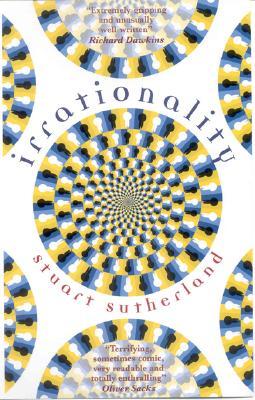
Irrationality is one of those books that gets under your skin and into your brain, refusing ever to leave. When you’ve finished with it, you feel both stupider and smarter, understanding explicitly what Socrates meant by “The only true wisdom is knowing you know nothing.”
The book covers some serious flaws of human cognition which have lead to serious injuries, sometimes as serious as death. But Irrationality also pokes fun at the more relatable mental gaffes we all make. Here’s an example of the “sunk cost fallacy”:
Almost everyone reading these pages will at some time have paid money to see a bad film or a bad play. Despite excruciating boredom, people often refuse to leave, even if the show is so bad that they would have paid a small amount of money to avoid seeing it at all. Thus, they irrationally suffer a double blow – they have spent money and they endure an hour or two’s needless boredom. The sensible thing for them to do is to leave, which means they only suffer the monetary loss.
Irrationality might not make you fully rational, but it will make you less ignorant of your irrationality, which in my book (and Sutherland’s), is just as good.
13. Paranormality: Why We See What Isn’t There — Richard Wiseman
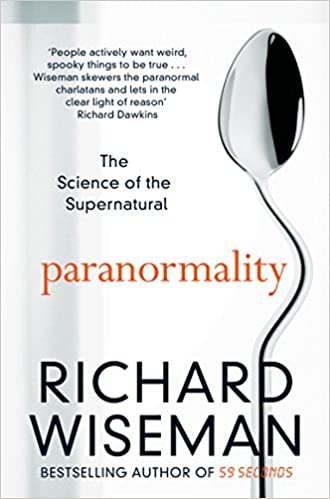
Richard Wiseman, is a professor of psychology, specializing in the quirky side of human nature. He’s written psychology books about magic, luck, statistics, success, and sleep. In Paranormality, Wiseman turns his attention to the psychology of superstition. In each chapter, Wiseman explores a different paranormal subject such as fortune telling, out-of-body experiences, mind control, and prophecy. Each chapter ends with a how-to on replicating the discussed effect with family and friends. Amid all of the fun and intrigue, there is a serious idea about human nature. We evolved to be good hunter-gathers of patterns as well as food. When there is a rustle in the grass, from a survival perspective, it is always better to assume that there lies a tiger in wait. This same overzealousness to see patterns when there may be none is what makes us hear ghouls in the whistle of the wind.
Derren Brown on Paranormality:
Richard Wiseman has written many highly accessible and enjoyable books offering an insight into the science behind such areas as the paranormal, luck and better living. This offers a terrific overview of why we might come to believe in the supernatural.
14. Trick or Treatment: The Undeniable Facts About Alternative Medicine — Simon Singh and Edzard Erst
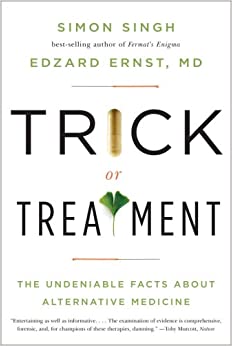
HighExistence is an open-minded community of freethinkers. We like to challenge the norms and rebel against the status quo. This attitude is often accompanied by a resistance to institutions and authorities like the police, government, and Big Pharma, resulting in a tendency to explore fringe health practices like meditation, psychedelics, yoga, and alternative medicine. Trick or Treatment is the perfect book for HEthens who are curious to explore alternative medicine but do not want to waste their time or money on treatments that are proven across the board to be either inefficient or, in some cases, harmful tricks.
Each chapter addresses a major field of alternative medicine such as acupuncture, homeopathy, chiropractic therapy, and herbal medicine (if you’d prefer more of a broad overview on all types of alternative medicine perhaps a better choice would be The Skeptic’s Dictionary, a book which Derren Brown also recommends).Trick or Treatment also has some fantastic chapters on the problems with determining truth and why it matters.
Written by Professor Edzard Ernst, the world’s first professor of complementary medicine, and Simon Singh, a seasoned science writer, Trick or Treatment will give you an unbiased account of alternative medicine and may also end up saving you lots of money and frustration.
15. Voodoo Histories: The Role of the Conspiracy Theory in Shaping Modern History — David Aaronovitch
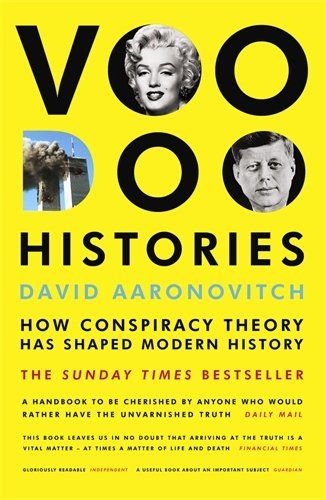
Conspiracy theories are damn tempting to believe. It’s obvious, after spending a little time on this planet, that the news and media do not present us with the full picture. We know that there is information being withheld from us. Every year we see a big “reveal” in the papers and find out a children’s TV presenter was a sex criminal or politicians have been spending tax payer’s money on sports cars. Upon hearing such scandals it’s only natural to ask, “What else are they hiding from us?” A few hours of Googling later… we are convinced of the Illuminati.
It’s one thing to have the belief that the government are withholding things from us and another thing entirely to assume that everything the government says is a lie. If you have the latter belief, you are essentially suffering from full-blown conspiritis (just made that word up). To counteract this condition I suggest Voodoo Histories, a book that takes an honest, unbiased look at the prevalent conspiracy theories and examines the weight of the evidence on both sides. And if you don’t tend to believe in conspiracy theories this book will arm you against those who have an answer for everything when it comes to moon landings and 9/11.
On Hacking Your Brain
Books that teach you how to get the most out of your grey matter.
16. Brain Rules: 12 Principles for Surviving and Thriving at Work, Home, and School – John Medina
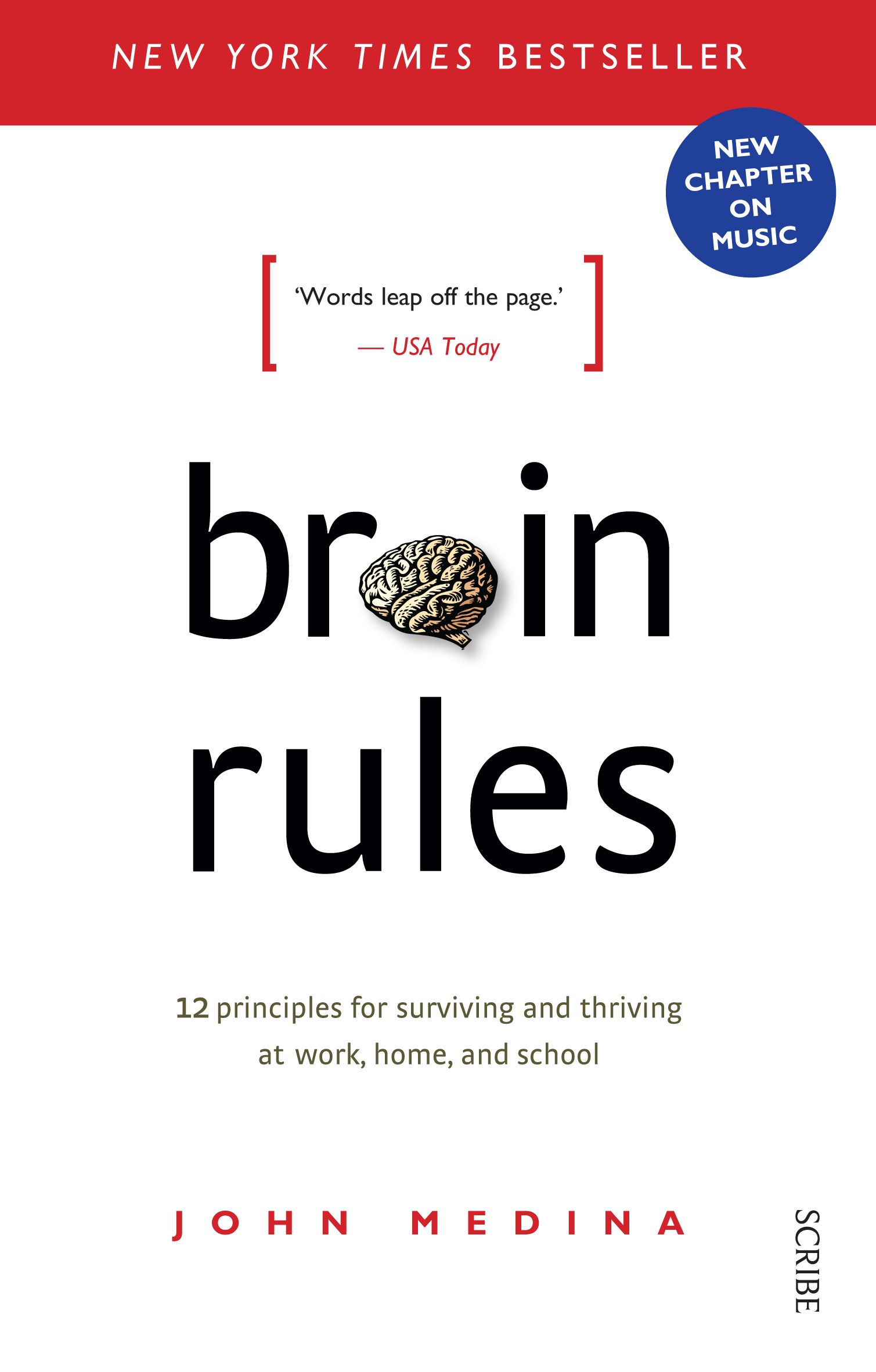
Dr. John Medina is a molecular biologist who also has a lifelong love of brains. If you want to fine tune your brain’s performance in memory, cognition, attention, vision, learning speed, and habit change, to name just a few areas, invest in your brain and read Brain Rules. In each chapter, Medina provides you with a science-backed “brain rule” to help you perform better.
There are chapters focusing on how the brain evolved, what type of exercise boosts brain power, how sleep benefits cognition, how stress destroys cognition, the right way to remember things, and the proven way to increase your attention span. John Medina has just updated this psychology book, and now there’s also an entire chapter on the brain-boosting powers of music. With such a potentially dry topic, Medina does an amazing job at making it highly readable and, in parts, hilarious. He’s knows a thing or two about how our attention works and seems to use that knowledge to keep the reader gripped throughout.
Cut through the noise and get access to insighful breakdowns of the best nonfiction books by joining the Stairway to Wisdom.
17. Mind Hacks: Tips & Tricks for Using Your Brain — Matt Webb and Tom Stafford
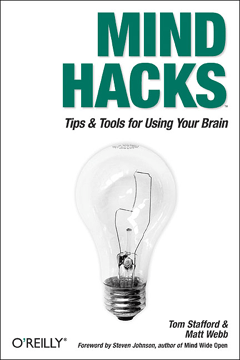
The authors of Mind Hacks describe the book as, “a collection of probes into the moment-by-moment workings of our brain with a view to understanding ourselves a little better and learning a little more, in a very real sense, about what makes us tick.” I had already read quite a few psychology books when I first read Mind Hacks, but there was something strikingly different about this book. Webb and Stafford have a knack for breaking down complex neuroscience in a relatable and useful way. I can honestly say I felt I had grasped how vision and memory and attention actually works by reading Mind Hacks—not in a vague metaphorical way, but in a concrete way that made me feel as though I had just read a user’s manual for my own mind.
Mind Hacks is not really a self-help book in the same way that Brain Rules is (see above). Mind Hacks, as I said, is like an instruction manual for your brain. You learn how each system works, which in turn helps you to steer it in the right direction. If you want, for example, to retain more of what you read, knowing how short-term and long-term memory work will help you set the conditions which allow for maximum retention. Or if you want to be able to see in the dark (each to their own) it helps to know that your peripheral vision is better at detecting motion and is more sensitive to light than your focused vision. Mind Hacks is the perfect book if you want to know how we actually function and why this knowledge can improve everything that we do.
18. Upgrade Your Life: The Lifehacker Guide to Working Smarter, Faster, Better — Gina Trapani
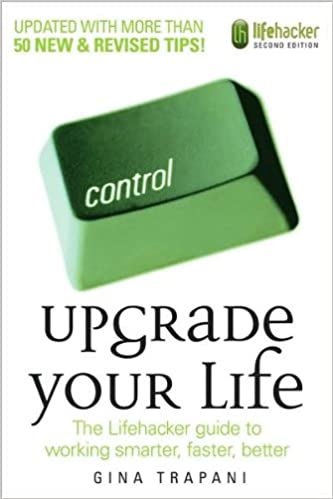
The philosopher David Chalmers believes that consciousness does not exist purely in the brain. He argues that tools such as pen and paper are an extension of consciousness because they are able to fulfill the same roles as the tools of the mind. On the surface, Upgrade Your Life is a book on optimizing your computer for productivity. But, if you were to follow Chalmers logic, today, computers are just an extended version of ourselves.
While Upgrade Your Life has some fantastic chapters on to-do lists and designing your routine for maximum productivity, the bulk of the book focuses on your computer, including the perfect system for blasting through your emails, fighting against hackers and viruses, and just generally turning your desktop into a nuclear workbench for stratospheric productivity.
19. Tricks of the Mind — Derren Brown
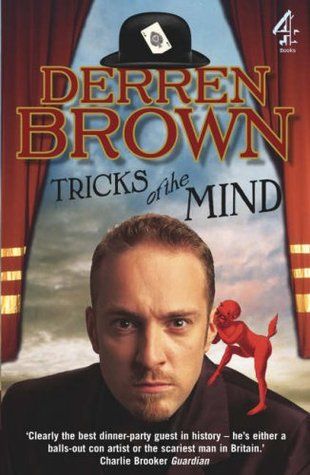
Of course, this list had to include Derren Brown’s Tricks of the Mind. This psychology book could be placed anywhere in this list and it would fit the category because it covers everything that Derren is about. However, the goal of the book, in the end, is to leave the reader with a set of mental tools to navigate the world.
In Tricks of the Mind, Derren Brown takes us on a tour of his mind and offers his best insights on many popular self-help subjects. He gives his tips on speed-reading, Neuro Linguistic Programming (NLP), confidence, reading body language, memory techniques, hypnosis and much more.
I love Derren’s enthusiasm for learning self-help techniques, but I also admire his skepticism and demand for evidence. This book offers insightful and useful ways to perform tricks with your mind, while always reminding us how easily our minds can be tricked. If you had to pick just one psychology book in this entire list, get this one.
20. How to Develop a Super Power Memory — Harry Lorayne
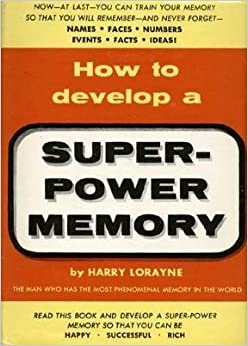
“Take my phone, and choose any name from my contact list.”
“Okay,” she said. “Mark.”
“Easy. 07986512456. Pick another…”
Back in university I had became pretty interested in improving my memory. Following Harry Lorayne’s advice in How to Develop a Super Power Memory I created my own mnemonic number system using famous movie characters and proceeded to memorize all of the phone numbers in my phone book and most of the bar codes of the products at the cinema I then worked (it was a boring job).
Memory is an overlooked skill nowadays. People have gotten used to using their smartphone apps for recording important information. This isn’t a inherently a bad thing, but it is making our memories worse. We’ve long known that mental skills work much like a muscle in the sense that if you don’t use them, they weaken over time. If you’d like to strengthen your memory muscle to the extent that shopping lists, long numbers, names, directions, and important facts are stored permanently in your head don’t forget to give How to Develop a Super Power Memory a read.
Derren Brown on How to Develop a Super Power Memory.
This is a classic work which has been re-printed many times since the very quaint 1940s edition which I have at home. Lorayne is a very successful magician and memory expert. This book will cover in more detail the principles I have set out [in Tricks of the Mind].
On Mastering Human Nature
Books that show you how to navigate the social landscape.
21. Opening Skinner’s Box: Great Psychological Experiments of the Twentieth Century — Lauren Slater
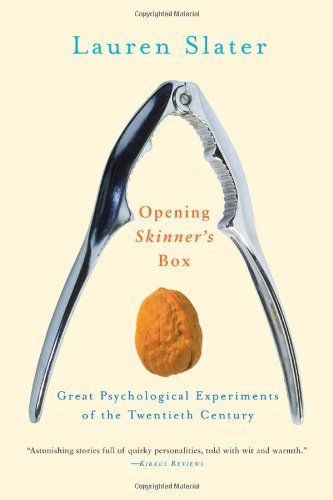
In this book, the American psychologist Lauren Slater deconstructs and describes some of the most important (and disturbing) psychological experiments of the twentieth century, including the conditioning work by B. F. Skinner, the obedience experiments by Stanley Milgram, Harry Harlow’s rhesus monkey studies, and a host of other topics such as addiction, lobotomy, cults, and memory.
If you’d love to read more psychology books but don’t want to wade your way through a 1,000 page textbook, open Opening Skinner’s Box.
Derren Brown on Opening Skinner’s Box:
It took me a while to like this book: Slater’s florid style does not sit easily with the academic nature of her subject. To begin with I found it self-indulgent, speculative and silly, but after a while it really won me over. Her chapter on addiction in particular is surprisingly moving. The book reads like a fiction writer’s take on the more notorious experiments of the last hundred years or so, and in that sense brings them all ‘to life’. Once you are happy to read the book as a personal and poetic take, it’s quite compulsive and lovely reading.
22. On Intelligence — Jeff Hawkins
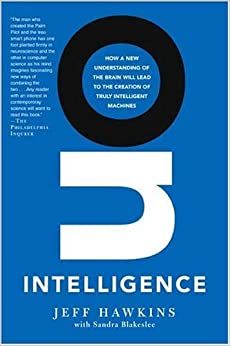
On Intelligence is one of the most thought-provoking books I have ever read. Jeff Hawkins is the tech wizard responsible for the Palm Pilot, “the first commercially successful example of a hand-held computing device.” Although Hawkins has had a successful career as an inventor he now focuses solely on neuroscience, a passion that he’s carried with him his whole life. On Intelligence is the written marriage of Hawkins’ two greatest passions: computer science and neuroscience.
Jeff Hawkins’ summary:
The book starts with some background on why previous attempts at understanding intelligence and building intelligent machines have failed. I then introduce and develop the core idea of the theory, what I call the memory-prediction framework. In chapter 6 I detail how the physical brain implements the memory-prediction model—in other words, how the brain actually works. I then discuss social and other implications of the theory, which for many readers might be the most thought-provoking section. The book ends with a discussion of intelligent machines—how we can build them and what the future will be like.
This is certainly not your average psychology book. Most of the ideas Jeff Hawkins presents in On Intelligence are radical to the extent that they will change the way you view intelligence and consciousness forever. Hawkins covers areas as diverse as consciousness, memory, vision, and the dangers of AI. This book was the Wired’s “Book of the Year”. It was mine too.
Cut through the noise and get access to insighful breakdowns of the best nonfiction books by joining the Stairway to Wisdom.
23. The Seven Sins of Memory: How the Mind Forgets and Remembers — Daniel Schacter
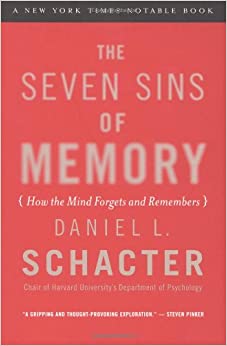
Daniel Schacter is a Harvard psychologist and one of the world-leaders in memory. The Seven Sins of Memory differs from books like How to Develop a Super Power Memory because it is not a strict “how-to” guide which focuses on improving memory via nemonic tricks. In this book, you don’t just learn how to remember things, you also learn the conditions that lead to forgetting things—you learn the sins of memory everyone makes and why we they exist in the first place. Memories that persist, for example, are one of the sins of memory that can lead to things like post traumatic stress syndrome. However, persistence is also necessary for long-term memory, and so it is essential.
All seven sins of memory, Schacter explains, can be classified into two broad groups: sins of omission (memory failure) and sins of commission (memory distortion). Memory is such a fundamental part of being human, if you are serious about mastering the study of human nature it would be a grave sin not to read The Seven Sins of Memory.
24. The Individual in a Social World: Essays and Experiments — Stanley Milgram
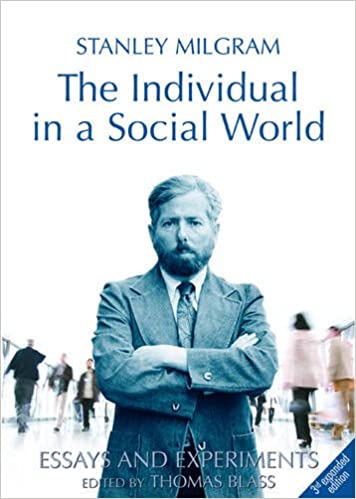
Stanley Milgram, P.hD., a psychologist those who have read Opening Skinner’s Box will be familiar with, is most famous for his “obedience experiments” and his theory “six degrees of separation.” This third and definitive collection of essays by Milgram details some of his major works and also those lesser-known. According to the author of Paranormality, Richard Wiseman, said that The Individual in a Social World “…should be read by every social scientist who is interested in behaviour beyond the laboratory.”
Derren Brown on The Individual in a Social World:
This contains the reports on Milgram’s famous Obedience experiment which has become synonymous with his name. (For those of you still unfamiliar with him, this is the supposed electrocution experiment we set up in The Heist). Aside from this landmark of social psychology, there are plenty of fascinating ideas and experiments contained in Milgram’s work. It’s an excellent read and very accessible in tone.
25. The Conscious Mind: In Search of a Fundamental Theory — David Chalmers
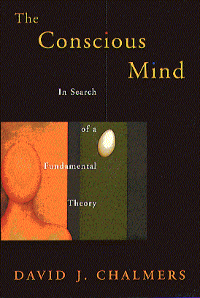
What is consciousness? How is it that us material creatures can experience the world in a seemingly immaterial way? What gives way to conscious experience is one of the greatest mysteries in philosophy and science. In The Conscious Mind, philosopher David J. Chalmers walks us through the mainstream attempts to explain the “hard problem” of consciousness, including the roadblocks neuroscientists have run into in determining the physical nature of consciousness.
After giving us a thorough tour of the “theories of mind”, Chalmers then proposes his own thought-provoking theory on consciousness, namely the extended mind theory. It’s a book that will educate you and baffle you and give you a strange kind of outer-body experience as you start analyzing your own moment-by-moment awareness. And if you’re anything like me, make you insatiably curious to explore the nature of consciousness in our universe.

Jon Brooks
Jon Brooks is a Stoicism teacher and, crucially, practitioner. His Stoic meditations have accumulated thousands of listens, and he has created his own Stoic training program for modern-day Stoics.










